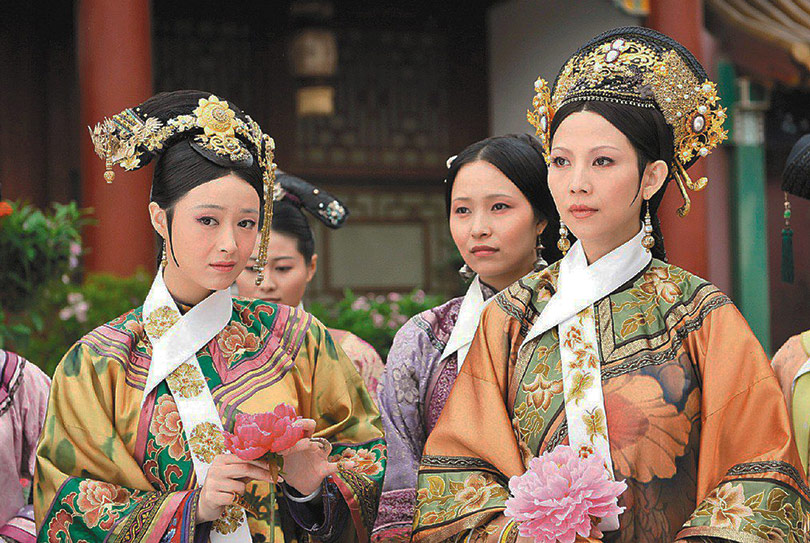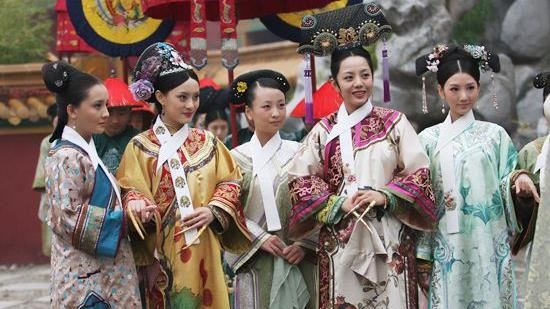Stuart Hall is one of the most important scholars in the field of British cultural studies since the 20th century. He is best known for developing a theory of encoding and decoding, in which audiences interpret media cultural products in a way that corresponds to their position and position in the social structure.
Ecoding of Hall Television Languange
- Content selection and presentation
In the coding process, content selection and presentation are crucial. In terms of content selection, producers need to consider the preferences and needs of the audience, and choose topics and stories that can resonate with the audience. In terms of presentation, TV images, sound effects, and background music are all important elements of coding.
Legend of Zhen Huan is an ancient drama widely loved in China. Set during the reign of Emperor Yongzheng in the Qing Dynasty, it tells the story of how Zhen Huan, the main character, becomes the Empress Dowager of the Virgin Mary. The palace scenery in the play is both magnificent and delicate, making the audience feel as if they are in the imperial palace of the Qing Dynasty. On the basis of respecting history, the costumes of the characters have added modern aesthetic elements, which are both classical and fashionable. In terms of visual effects, it brings great enjoyment to the audience.
- Emotional expression and plot arrangement
In the coding need to fully express emotions, and reasonable arrangement of the plot. Through the expression of emotions and the design of the plot, the coder can better attract the audience’s attention, make it resonate, and then easier to decode.
This video is an event in which the concubines struggle for power in the harem, and background music is added to the appropriate plot. The plot is compact and exciting, which helps the coders output information to a certain extent, making the plot more diversified.
Decoding of Hall Television Language
In the process of decoding, the audience’s cognition and perception play a crucial role. Through the understanding and perception of TV discourse, the audience needs to get an accurate grasp of the content and generate emotional resonance.
For example, in this TV drama, set in the Qing Dynasty, the audience is not unfamiliar with this era, and it is easy for the audience who knows Chinese history to understand, and the decoding process of the plot will be very smooth.
Conclusion
Encoding and Decoding: Hall’s concepts of encoding and decoding explain the interactive process of media and cultural information. Encoding is how creators embed information into media products, while decoding is how audiences interpret and understand encoded information. This emphasizes the agency of audiences in information interpretation and how they bring their backgrounds and viewpoints into the decoding process.
In today’s digital age, television discourse has become an indispensable part of People’s Daily life. Hall’s knowledge framework of encoding and decoding is an important tool for in-depth interpretation of this discourse phenomenon.
References
- dinosossi (2018).┬ĀTranslating Media MessagesŌĆōStuart HallŌĆÖs Encoding/Decoding. [online] dino sossi. Available at: https://dinosossi.wordpress.com/2018/04/01/translating-media-messages-stuart-halls-encoding-decoding/.
- Hua Hsu. (2017). Stuart Hall and The Rise of Cultural Studies. [Online]. The New Yorker. Last Updated: July17, 2017. Available at: https://www.newyorker.com/books/page-turner/stuart-hall-and-the-rise-of-cultural-studies [Accessed 20 November 2023].



Really nice work! You explained the encoding and the decoding theory perfectly and “Legend of Zhen Huan” is a great example. Your conclusion summarises Hall’s concepts very effectively!
But I wanted to ask a question, what do you think on how your culture can influence you own viewpoint of watching something?
Great work on relativising Hall’s theory of encoding and decoding in film. It was interesting an d new for men to learn about a Chinese classic such as the Empress Dowager of the Virgin Mary. It is interesting how you talk about the importance of the scenery and setting in order to encode certain messages abut what era the film is set in, the time period, the style of dress and social classes. I wonder are the colours used i the actors robes and colours immediately indicative of the fact that this is a film of the Chinese classic the Empress Dowager of the Virgin Mary? It is also interesting that you discuss the importance of emotional expression, and how actors often have to learn to convey minute expressions through their face and body language to indicate the emotional state of the character. Have you noticed any difference in Chinese actors expression and Hollywood actors way of expressing? All in all this was a great read, next time it would be nice to have a bit more information about the specific meaning of certain symbols encoded in the photos or videos used to support the blog.